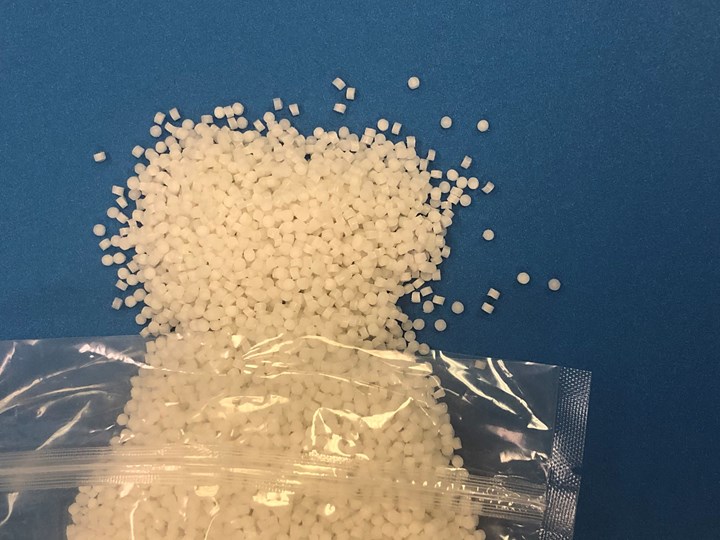Additives: Processing Stabilizer for Repro and/or Recycled HDPE
Addisperse’s NC 203 C stabilizer for repro and/or recycled HDPE compounds rebuilds HDPE’s molecular weight, boosting physical properties.
A new processing stabilizer that has been shown to rebuild the molecular weight of HDPE in a controlled manner has been launched by Addisperse, a 大象传媒 of Aromatic Fusion Inc. (AFI), Bensalem, Penn. Developed for use in compounds and processes containing HDPE repro and/or recycled resin, Addisperse NC 203 C reportedly is a combination of a cross linking agent and an antioxidant.

As a result of multiple heat histories, HDPE is known to break down in molecular weight. This thermal breakdown can create PE wax which dramatically reduces HDPE’s molecular weight, which alters both the melt index and hot strength of the HDPE and compounds containing repro and/or recycled HDPE. One of the most dramatic effects on physical properties is a loss of impact strength, resulting in increased brittleness. According to Addisperse, the addition of as little as 2% of NC 203 C can eliminate many of the negative process and physical property effects when using repro and/or recycled HDPE.
Overall, Addisperse NC 203 C has been shown to increase hot strength, stabilize regrind, minimize stress cracks, increase flex strength and preserve impact strength, along with providing a wider process window.
Related Content
-
Braskem Selected to Negotiate Federal Funding Award to Expand UHMWPE
By driving innovation for Braskem’s ‘Utec’ UHMWPE, the project would strengthen the lithium-ion battery value chain in the U.S.
-
Ultralight PET Preform Design
The Factor 101 design created by KHS and Husky uses just 5.89 g of material to hold 591 mL of product — equivalent to a 20-ounce water bottle.
-
High-Jetness Carbon Black for Engineered Plastics
Orion’s new Printex chroma 500 Beads are well suited for applications such as injection molded automotive parts and household appliances.






